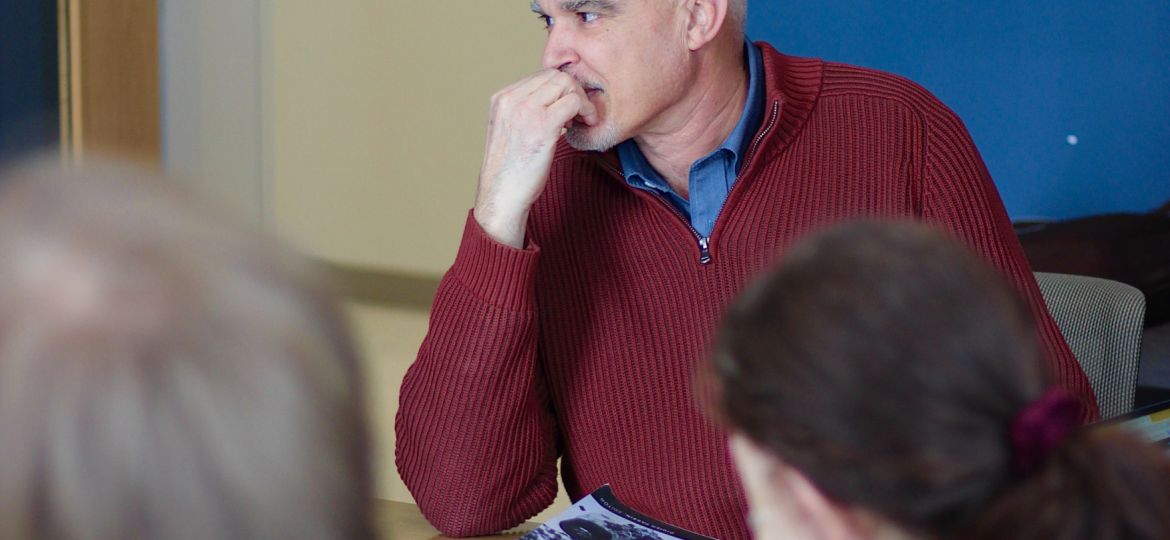
Students wonder about the future of conversation programs after changes have been made to programs such as Enduring Questions, formerly the Great Conversation, and rumors of programs ending. Despite this speculation, conversation program leaders ensure the programs are staying put.
“I don’t know where this conversation is coming from,” Associate Dean of Interdisciplinary Studies Karil Kucera said, in response to the rumor that the Conversations Programs are being sacked. “They’re adjusting. Maybe something worked 10 years ago that doesn’t work now. We often revisit the curriculum. It’s the nature of academia.”
Having existed for decades, many of these programs reflect St. Olaf’s culture of passion and high academic achievement. They show no slow-down. “When the Great Conversation was conceived, it was a way to bring students together, to create cohorts who could take a long-term deep dive,” Kucera said.
But have they dived too deep? American Conversation is taking a one-year hiatus to do some “soul-searching.” Science Conversation will “cease to exist as a named entity,” as it will morph into a looser course track. Asian Conversation already shifted to a first-year program to prevent sophomore stress, and Environmental Conversation and American Conversation dropped their residential components (Great Conversation still maintains theirs).
Central to these changes is the notion of rigor. “CH/BI [Chemistry/Biology Conversation Program] never lived up to the intended goal of a fully integrated course, ” Chair of the Chemistry Department Doug Beussman ’92 said.
Students perceived it as an expensive, “very difficult course” that forced them to sacrifice other desired courses or programs, making it not “as inclusive as desired.”
As with other programs, the hope is “to resurrect some form of CH/BI in the future.” But even then, there are enduring questions as to whether faculty will focus on lessening the mental burden of their curricula or on reigning in future students.
“My Great Con experience was very unfulfilling. The program’s ‘rigor’ felt more like insubstantial busywork, Alyssa Vue ’24 said. ”I left feeling anxious, insecure, and disenchanted that my perspective didn’t matter.”
Similarly disgruntled ex-Environmental Conversation member Abby Hilsman ’25 state similar remarks. “There was way too much reading,” Hilsman said. “It was supposed to be empowering, but was depressing.”
Great Conversation has recently restructured and rebranded itself. The program is now called “Enduring Questions,” a response to complaints that the program’s name promoted colonialist ideas. Its reading load has also been reduced and altered to include more women and non-European writers.
Other students affirm the conversation programs’ fulfillment. Hannah Anderson ’25 voiced that she loved how “everything is connected.” Xander Fuhrer ’25 divulged, “I feel comfortable and truly seen. The intent is not just to learn, but to love, and love deeply—the world, the divine, the past, ourselves, each other. Even in all that is wrong in life, it is this strain of compassion that allows us to engage with the past, and to live to understand it.”
The questions between students and professors, past and present, and ideas and their oppositions are critical to this engagement. While each conversation program has faculty that manages its own section, students’ questions and concerns on any particular one should be considered by all overseeing officials. The genuine care to address all concerns leads to the excellence which grounds St. Olaf’s reputation.
As Fuhrer puts it, “sincere, vulnerable sentiment is one of the things this encourages. Without it, how could profound conversation ever take shape?” The Conversations Programs are in a liminal stage.

